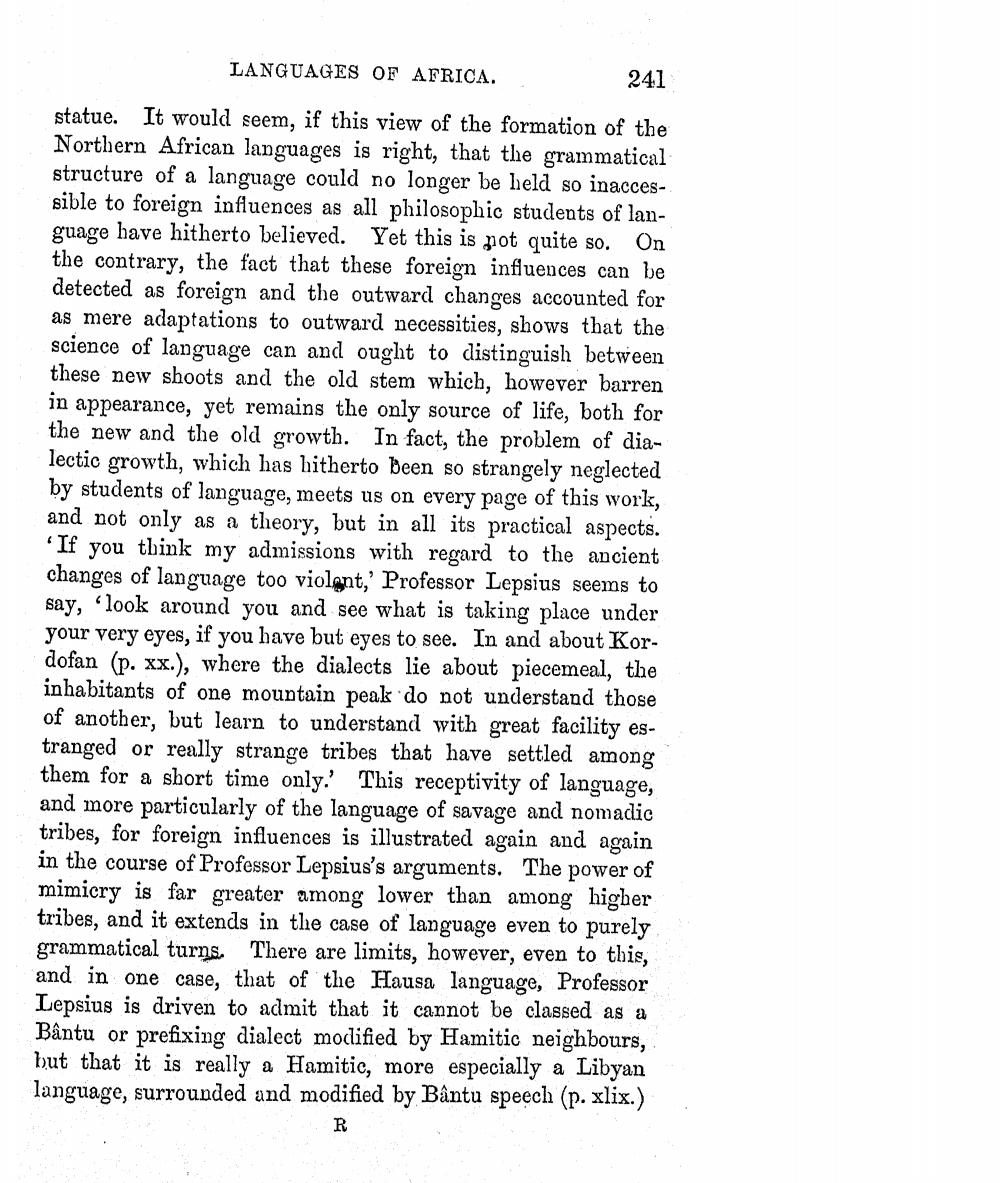________________
LANGUAGES OF AFRICA.
241
statue. It would seem, if this view of the formation of the Northern African languages is right, that the grammatical structure of a language could no longer be held so inaccessible to foreign influences as all philosophic students of language have hitherto believed. Yet this is not quite so. On the contrary, the fact that these foreign influences can be detected as foreign and the outward changes accounted for as mere adaptations to outward necessities, shows that the science of language can and ought to distinguish between these new shoots and the old stem which, however barren in appearance, yet remains the only source of life, both for the new and the old growth. In fact, the problem of dialectic growth, which has hitherto been so strangely neglected by students of language, meets us on every page of this work, and not only as a theory, but in all its practical aspects. 'If you think my admissions with regard to the ancient changes of language too violent,' Professor Lepsius seems to say, 'look around you and see what is taking place under your very eyes, if you have but eyes to see. In and about Kordofan (p. xx.), where the dialects lie about piecemeal, the inhabitants of one mountain peak do not understand those of another, but learn to understand with great facility estranged or really strange tribes that have settled among them for a short time only.' This receptivity of language, and more particularly of the language of savage and nomadic tribes, for foreign influences is illustrated again and again in the course of Professor Lepsius's arguments. The power of mimicry is far greater among lower than among higher tribes, and it extends in the case of language even to purely grammatical turns. There are limits, however, even to this, and in one case, that of the Hausa language, Professor Lepsius is driven to admit that it cannot be classed as a Bântu or prefixing dialect modified by Hamitic neighbours, but that it is really a Hamitic, more especially a Libyan language, surrounded and modified by Bântu speech (p. xlix.)
R




